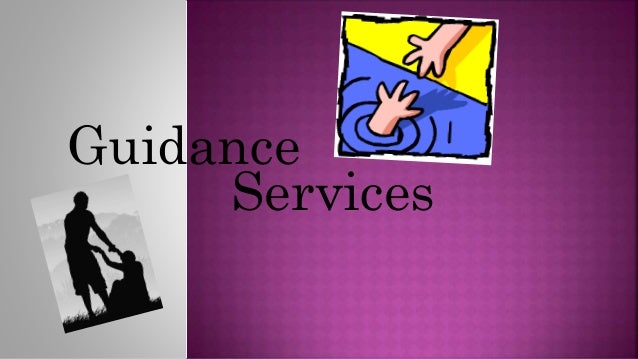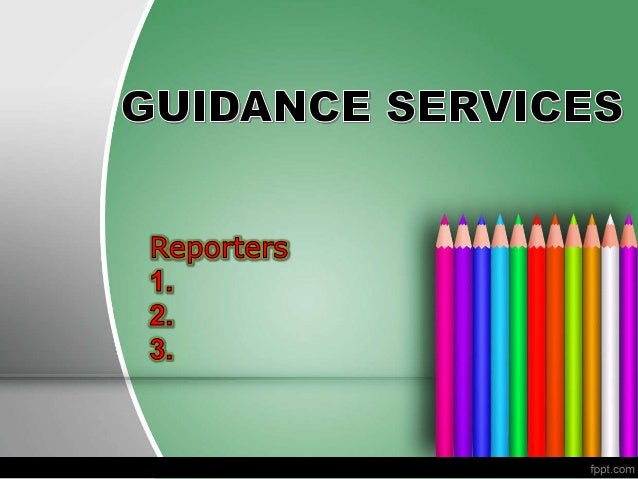Vocational Centresmac Guidance Services
PD-19-01—'Discontinuation of the Quarterly Cumulative Caseload Report (RSA-113)'
Feb 12, 2019 — PDF (18KB)
TAC-18-02—'Submission Procedures for Prior Written Approval Requests under the State Vocational Rehabilitation (VR) Services Program'
Apr 11, 2018 — PDF (113KB)
TAC-18-01—'Two-Year Modification Requirements for Workforce Innovation and Opportunity Act (WIOA) Unified and Combined State Plans'
Jan 19, 2018 — PDF (169KB)
A career guidance and counseling program develops an individual's competencies in self-knowledge, educational and occupational exploration, and career planning. Why is Career Guidance and Counseling Key to the Delivery of Vocational-Technical Education? Career guidance and counseling programs help individuals acquire the knowledge, skills,. Vocational rehabilitation counseling and guidance, including information and support services to assist an individual in exercising informed choice; Referral and other services necessary to assist applicants and eligible individuals to secure needed services from other agencies and to advise those individuals about client assistance programs. Here we would like a brief overview of arrangements for information, guidance and counselling services in your country. 1.1 Please provide a brief (no more than one page) overview of national arrangements for career information, guidance and counselling services in your country.
TAC-17-05—'WIOA Annual Performance Report Submission'
Sep 11, 2017 — PDF (28KB)
PD-16-04 — 'Revision of Policy Directive (PD) 14-01 instructions for the completion of the Case Service Report Manual (RSA-911) for the State Vocational Rehabilitation Services Program and the State Supported Employment Services Program'
June 17, 2017 — PDF (929KB)
PD-16-03 — 'Workforce Innovation and Opportunity Act (WIOA) Requirements for Unified and Combined State Plans'
Mar 9, 2016 — PDF (72KB)

PD-16-02 — 'Announcement of OMB Approval for Annual Report on Appeals Process (RSA-722)'
Dec 14, 2015 — PDF (119KB)
TAC-15-02 — 'Vision for the State Vocational Rehabilitation Services Program as a Partner in the Workforce Development System under the Workforce Innovation and Opportunity Act'
Aug 17, 2015 — PDF (69KB)
TAC-15-01 — 'Vision for the One-Stop Delivery System under the Workforce Innovation and Opportunity Act (WIOA)'
Aug 13, 2015 — PDF (99KB)
PD-15-05 — 'Revisions to PD-12-06, instructions for completing the Federal Financial Report (SF-425) for the State Vocational Rehabilitation Services program'
Feb 5, 2015 — PDF (131KB)
TAC-13-02 — 'Reorganization of the Designated State Agency and the Designated State Unit for the Vocational Rehabilitation Program'
Jul 9, 2013 — PDF (99KB)
PD-13-01 — 'Announcement of OMB Approval for Annual Report on Appeals Process (RSA-722)'
Oct 22, 2012 — PDF (74KB)
TAC-12-04 — 'Provision of Vocational Rehabilitation Services to an Individual by More Than One Agency'
Jun 11, 2012 — PDF (52KB)
TAC-12-03 — 'Organizational Structure and Non-Delegable Responsibilities of the Designated State Unit for the Vocational Rehabilitation Program. '
Apr 16, 2012 — PDF (73KB)
MOU-12-01 — 'Memorandum of Understanding Between Department of Veterans Affairs Vocational Rehabilitation and Employment Service and U.S. Department of Education Rehabilitation Services Administration'
May 23, 2011 — PDF (46KB)
IM-07-08 — 'Transition Programs & Services: High School/High Tech & Vocational Rehabilitation'
Jul 23, 2007 — PDF (47KB)
PD-05-01 — 'Liquidation of Obligations Under RSA’s Formula Grants.'
Mar 8, 2005 — PDF (31KB)
IM-01-44 — 'Applicability of the Health Insurance Portability and Accountability Act of 1996 to the Vocational Rehabilitation Services Program.'
Sep 25, 2001 — PDF (21KB)
IM-01-43 — 'Basic Information and Resources Available Regarding Post Traumatic Stress Disorder.'
Sep 25, 2001 — PDF (21KB)

PD-01-03 — 'Implementation of Informed Choice.'
Jan 17, 2001 — PDF (42KB)
IM-01-18 — 'Development of National Registry for the Deaf-Blind.'
Dec 18, 2000 — PDF (19KB)
TAC-00-02 — 'Self-employment, Telecommuting, and Establishing a Small Business as Employment Outcomes.'
Jul 24, 2000 — PDF (27KB)
TAC-98-01 — 'Support Services for Individuals with Cognitive Disabilities and Others Who Need Assistance in Implementing Informed Choice.'
Nov 3, 1997 — PDF (48KB)
Read this article to learn about the introduction, committees and scope of guidance services in schools.
Introduction to Guidance Services in Schools :
It has been aptly remarked that guidance is accepted as an integral part of education. Whatever may be the objectives of school education, students need the assistance of teachers and others connected with them to be able to make satisfactory progress. No student has ever been able to manifest and maximize his potentialities on large extent, make appropriate career plans, get a suitable occupation and make satisfactory adjustment in the society without assistance of guidance programme organised in school.
It constitutes parents, teachers, community members, administrators, guidance workers, specialists etc. The cause is, in the modern complex society it has become a difficult task on part of home and community to provide appropriate and adequate guidance to students as per their needs and requirements. Hence, the school has a vital role to play in guiding the students.
ADVERTISEMENTS:

Vocational Centresmac Guidance Services Llc
The school as the most important agency provides guidance in:
(i) Manifesting and maximizing the potentialities of every pupil.
(ii) Assessing the pupil’s, needs, interests, abilities, capacities, in doing any work of his suitability.
Vocational Centresmac Guidance Services New York
(iii) Making appropriate plan for his/her future.
(iv) Taking right and appropriate decision in right time.
(v) Taking proper decision regarding selection of a suitable educational career.
(vi) Finding a suitable vocation.
(vii) Making satisfactory adjustments in home, school and the community in a desirable manner.
ADVERTISEMENTS:
(viii) Achieving self-realization, self-direction and self- development.
In the light of above discussion it has been felt that there is need of organizing guidance programmes in schools and the guidance programmes should be organised in nature. Here an organised programme means, every guidance programme is to be organised in a systematic way. It means it must have definite objectives. There should be a guidance committee in every school. The teacher in-charge of guidance service must be clear in his mind about the scope and limitations of such a programme. He must be able to organize minimum guidance services for students.
The organisation of guidance services is not be the major responsibility of anyone person. Rather it is the joint responsibility of the headmaster, the counsellor, the career master, teachers, administrators, specialists and community members. They have to play important roles for making any guidance programme in the school a grand success.
It is essential to mention here that although there is the need of organizing guidance programme in primary schools but it’s organisation on wider extent and full-fledged manner lies in secondary schools. So in our saying and writing the organisation of guidance programmes in schools means in secondary schools and vice-versa.
The School Guidance Committee:
Saying anything and doing accordingly is a matter of difference as there lies difference between hail and heaven. For achieving the goals of every programme in any field or area, there should be a systematic, deliberate and consistent effort behind it. Otherwise the goals of the programme will be lopsided. In order to avoid this and not to provide any chance in bringing difference between hail and heaven in the field of guidance programme there should be the necessity of a guidance committee.
In other words, it can be visualized that in order to organize guidance services or programmes properly and systematically for achieving its goals there should be a guidance committee with the following personnel. A detail discussion on it is given below. Different types of guidance committees may be necessary for different institutions as no single pattern or structure can fulfill the needs and requirements of all schools; large and small, rural and urban, boys and girls and government and non-government etc.
However, for a secondary school, there must be a guidance committee for organizing and monitoring its guidance programme properly, although this committee may vary according to the availability of human and material resources. Hence, let us know the composition of the guidance committee or school guidance committee.
1. The Principal or Headmaster:
ADVERTISEMENTS:
The principal or headmaster of the school should be the chairman or chairperson of the school guidance committee.
2. Counselor or Career Master or guidance teacher:
The school counselor or career master or guidance teacher acts as the secretary cum-governor of the school guidance committee. A full time counselor may be appointed if possible. In his absence, a teacher trained in guidance has to do the job of the career master. Even if a school possesses a full time counselor, it may also have a trained teacher in the staff to give necessary assistance to the counselor.
3. Staff representative (One-Member):
The senior teacher of the school acts as an ex-officio member of the guidance committee.
4. The School Medical Officer:
The medical officer of the school acts as a member of the school guidance committee.
5. Chairman or Secretary of the Managing Committee: Member.
ADVERTISEMENTS:
6. The Physical Education Teacher (P.E.T.): Member.
7. A Few experts in different fields available in the community.
Scope of School Guidance Service:
The scope of school guidance service encompasses its objectives, facilities and opportunities provided to students and the extent of activities as far as a school can organize. The scope or subject matter of guidance services or programmes in any educational institution or school depends upon proper utilization of its resources—physical, financial and human resources.
For proper organisation of guidance services in schools the scope of school guidance programme constitutes the following things:
1. Collection of information about the students for pupil inventory service.
2. Establishing a guidance centre or guidance point.
3. Organisation of career talk, career conference, visits to colleges, universities etc.
4. Organisation of guidance exhibition.
5. Propagation of educational and occupational information.
6. Maintenance of cumulative record card (C.R.C) for each pupil.
7. Organisation of orientation talk for newcomers.
8. Providing counseling to pupils relating to their adjustment problems.
ADVERTISEMENTS:
9. Organisation of educational talks regarding different educational careers.
10. Keeping relation with other agencies such as employment exchange, training institutes and institute of higher education.
11. Keeping contacts with school leavers to determine or know the effectiveness, of guidance and counseling.
12. Organisation of short-session guidance programme for school leavers in college education, occupational life and social life.
Besides the above things, minimum programmes of guidance in school constituting three major aspects are also included in its scope.
These are as under:
1. Data Collection Service:
It is a specialized service involving the collection of data on pupil’s abilities, interests, aptitudes, scholastic achievements, personality traits, family background etc. This information will help the career master or guidance worker to understand each pupil and to provide them suitable educational and vocational guidance.
The above data can be collected through achievement tests, personality tests, intelligence tests, diagnostic tests, interest inventories, observations, interviews, questionnaire, clinical studies, rating scale etc. For better presentation and accurate guidance, the information so collected should be maintained in the cumulative record cards.
2. Occupational Information Service:
The function of this service is to avail information regarding various training and educational courses for the job market. Such information can be collected from offices or institutions like colleges, employment exchanges, the state bureau of guidance, recruiting offices of armed forces or publications like employment news, information bulletins, employment bulletins etc. Besides information about jobs and training facilities available in the country and abroad may be provided to the pupils through talks, career conferences, demonstrations, pamphlets, notices etc.
3. Counselling:
ADVERTISEMENTS:
Counselling is intended to provide personal or individual guidance to students through interviews or other ways of personal contacts. The educational or scholastic, vocational and personal problems as well as problems of adjustment are dealt in the counseling sessions. For doing this work properly, the counselor has to first establish relationship or rapport with the pupils in a friendly, cordial and co-operative atmosphere.
Related Articles:
